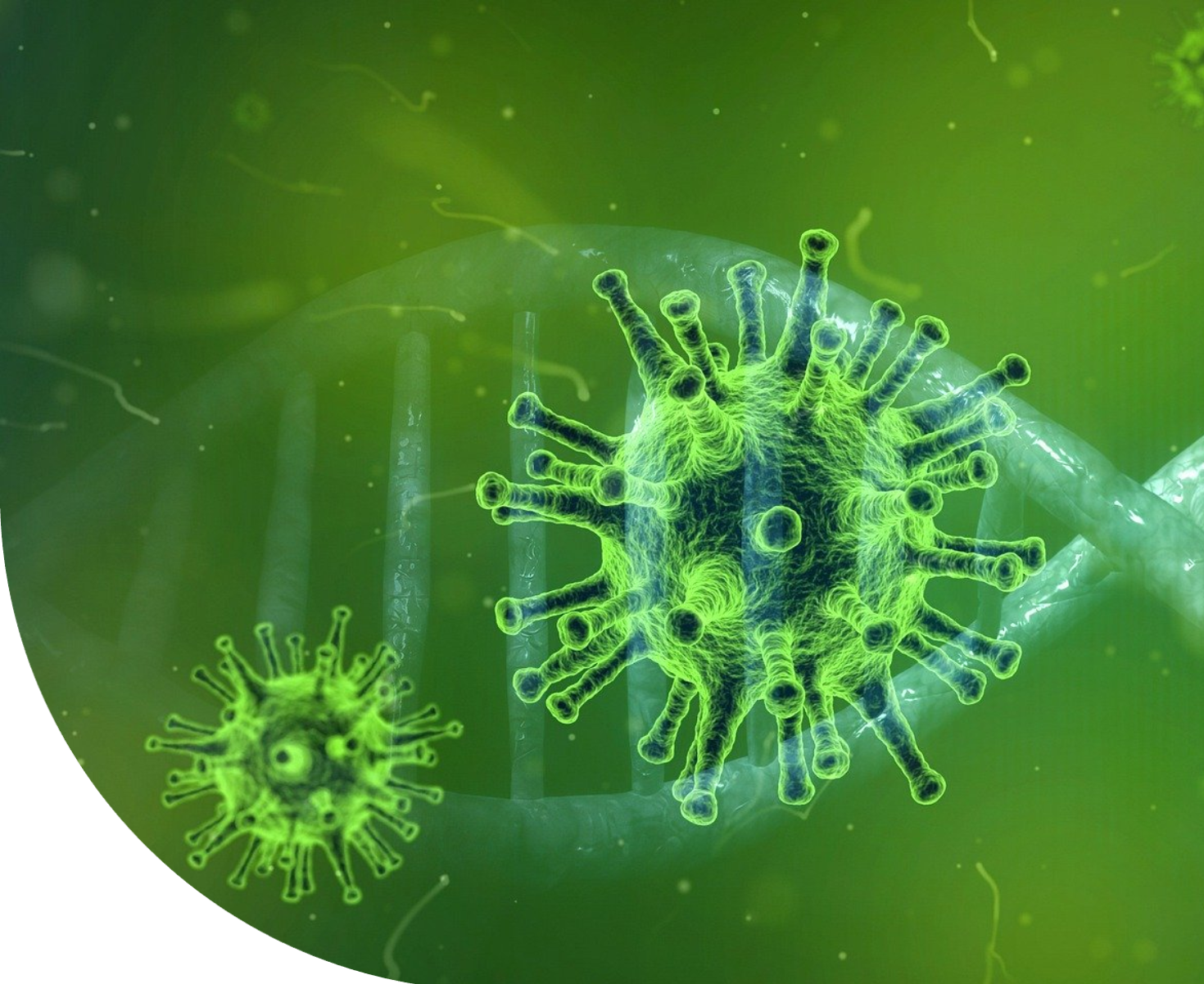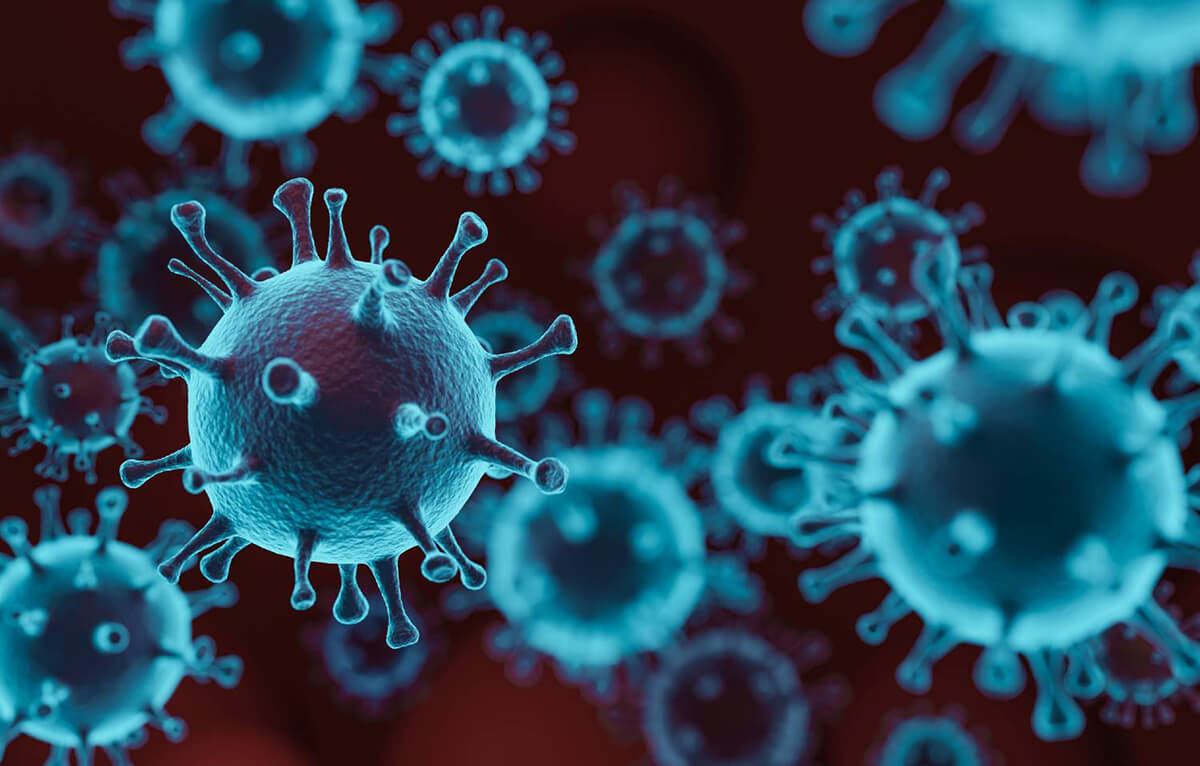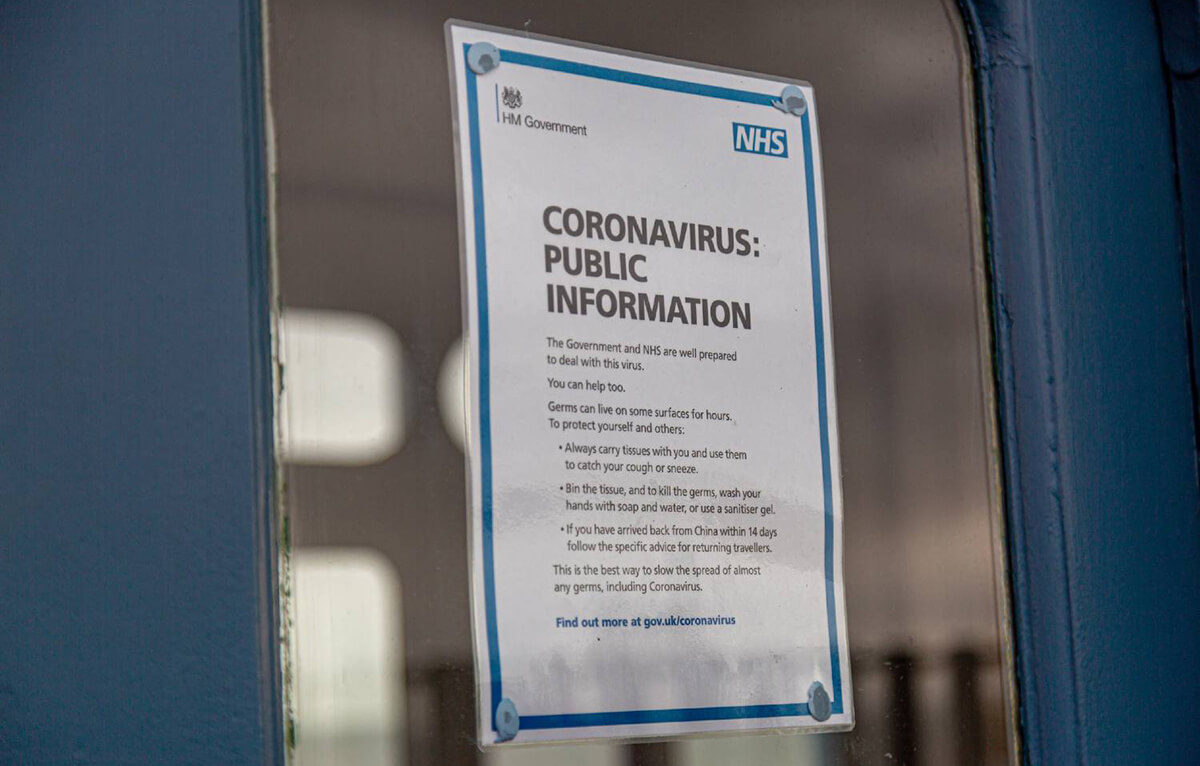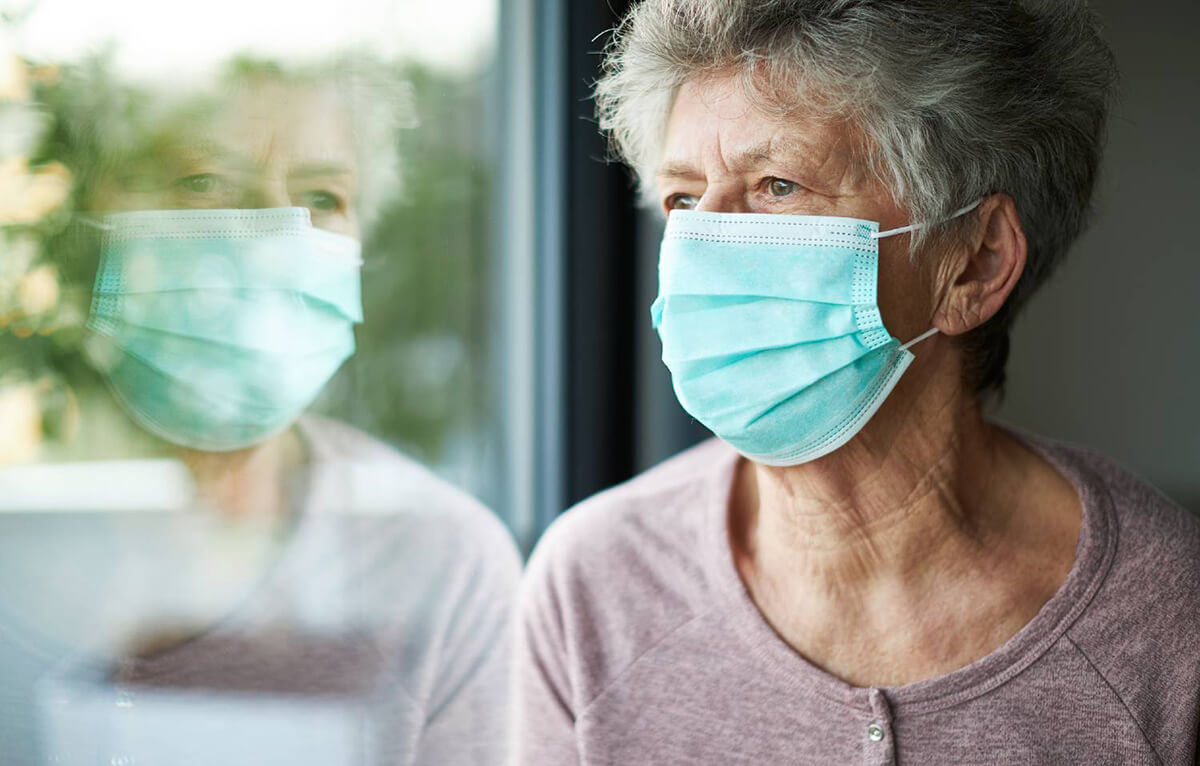COVID-19/Coronavirus
COVID-19 is a new illness that can affect your lungs and airways. It’s caused by a virus called Coronavirus.

What is COVID-19/Coronavirus?
COVID-19 is a new illness that can affect your lungs and airways. It’s caused by a virus called Coronavirus. Coronaviruses are a group of viruses that cause illnesses such as the common cold, to more severe conditions such as pneumonia, Middle East Respiratory Syndrome (MERS) and Severe Acute Respiratory syndrome (SARS). The COVID-19 strain of Coronavirus is new and not previously known.
The source of the current outbreak hasn’t been confirmed yet but is being investigated. From the evidence available so far, it appears that human-to-human transmission is occurring.


What are the symptoms?
The main symptoms of this Coronavirus include:
- fever (high temperature)
- cough
- shortness of breath
- respiratory symptoms (like those you have with a cold)
- breathing difficulties
- headaches
Stay at home to stop coronavirus spreading
Everyone must stay at home to help stop the spread of coronavirus.
You should only leave the house for 1 of 4 reasons:
- shopping for basic necessities, for example food and medicine, which must be as infrequent as possible
- one form of exercise a day, for example a run, walk, or cycle – alone or with members of your household
- any medical need, or to provide care or to help a vulnerable person
- travelling to and from work, but only where this absolutely cannot be done from home
Important!
These 4 reasons are exceptions – even when doing these activities, you should be minimising time spent outside of the home and ensuring you are 2 metres apart from anyone outside of your household (social distancing).


Stay at home to stop coronavirus spreading
Everyone must stay at home to help stop the spread of coronavirus.
You should only leave the house for 1 of 4 reasons:
- shopping for basic necessities, for example food and medicine, which must be as infrequent as possible
- one form of exercise a day, for example a run, walk, or cycle – alone or with members of your household
- any medical need, or to provide care or to help a vulnerable person
- travelling to and from work, but only where this absolutely cannot be done from home
Important!
These 4 reasons are exceptions – even when doing these activities, you should be minimising time spent outside of the home and ensuring you are 2 metres apart from anyone outside of your household (social distancing).

How to stop infection spreading
There are things you can do to help reduce the risk of you and anyone you live with getting ill with coronavirus.
Do
- wash your hands with soap and water often – do this for at least 20 seconds
- use hand sanitiser gel if soap and water are not available
- wash your hands as soon as you get back home
- cover your mouth and nose with a tissue or your sleeve (not your hands) when you cough or sneeze
- put used tissues in the bin immediately and wash your hands afterwards
Don’t
- do not touch your eyes, nose or mouth if your hands are not clean
Looking after your health and wellbeing
To help yourself stay well while you’re at home:
- stay in touch with family and friends over the phone or on social media
- try to keep yourself busy – you could try activities like cooking, reading, online learning and watching films
- do light exercise at home, or outside once a day


Looking after your health and wellbeing
To help yourself stay well while you’re at home:
- stay in touch with family and friends over the phone or on social media
- try to keep yourself busy – you could try activities like cooking, reading, online learning and watching films
- do light exercise at home, or outside once a day

Do not leave your home if you have coronavirus symptoms
Do not leave your home if you have either:
- a high temperature – this means you feel hot to touch on your chest or back (you do not need to measure your temperature)
- a new, continuous cough – this means coughing a lot for more than an hour, or 3 or more coughing episodes in 24 hours (if you usually have a cough, it may be worse than usual)
To protect others, do not go to places like a GP surgery, pharmacy or hospital. Stay at home.
- Use the 111 online coronavirus service to find out what to do.
What to do if you need medical help
If you need medical help for any reason, do not go to places like a GP surgery, pharmacy or hospital.
If you have symptoms of coronavirus (a high temperature or a new, continuous cough), use the 111 coronavirus service.
If you need help or advice not related to coronavirus:
- For health information and advice, use theNHS website or your GP surgery website
- For urgent medical help, use the NHS 111 online service – only call 111 if you’re unable to get help online
- For life-threatening emergencies, call 999 for an ambulance
Read more advice about getting medical help at home.


What to do if you need medical help
If you need medical help for any reason, do not go to places like a GP surgery, pharmacy or hospital.
If you have symptoms of coronavirus (a high temperature or a new, continuous cough), use the 111 coronavirus service.
If you need help or advice not related to coronavirus:
- for health information and advice, use theNHS website or your GP surgery website
- for urgent medical help, use the NHS 111 online service – only call 111 if you’re unable to get help online
- for life-threatening emergencies, call 999 for an ambulance
Read more advice about getting medical help at home.

Treatment for Coronavirus
There is currently no specific treatment for Coronavirus. Antibiotics do not help, as they do not work against viruses. Treatment aims to relieve the symptoms while your body fights the illness. You’ll need to stay in isolation, away from other people, until you have recovered.
Urgent advice: Use the NHS 111 online Coronavirus service if:
- you feel you cannot cope with your symptoms at home
- your condition gets worse
- your symptoms do not get better after 7 days
Use the 111 Coronavirus service
Only call 111 if you cannot get help online.